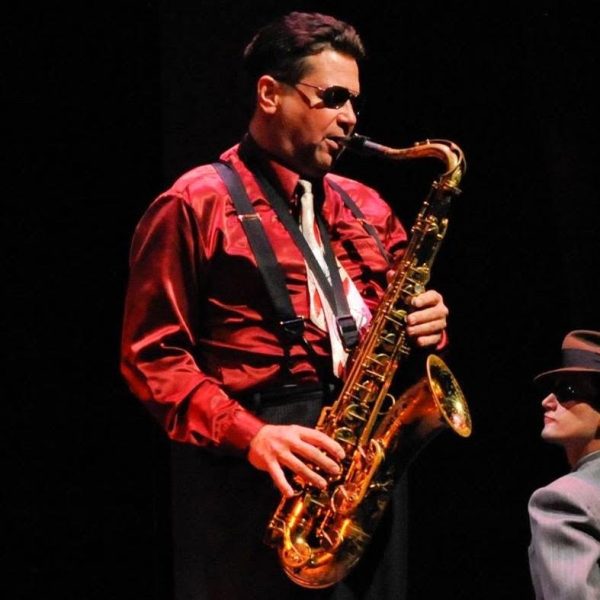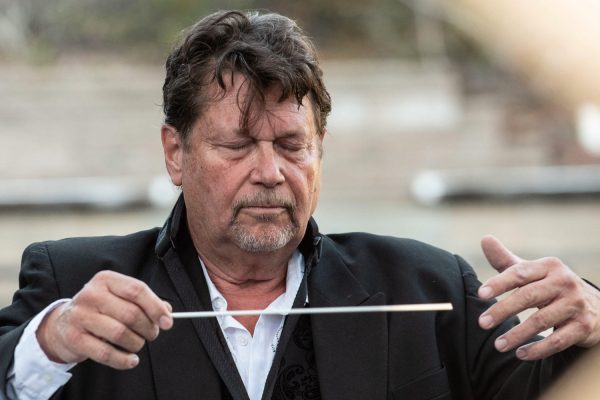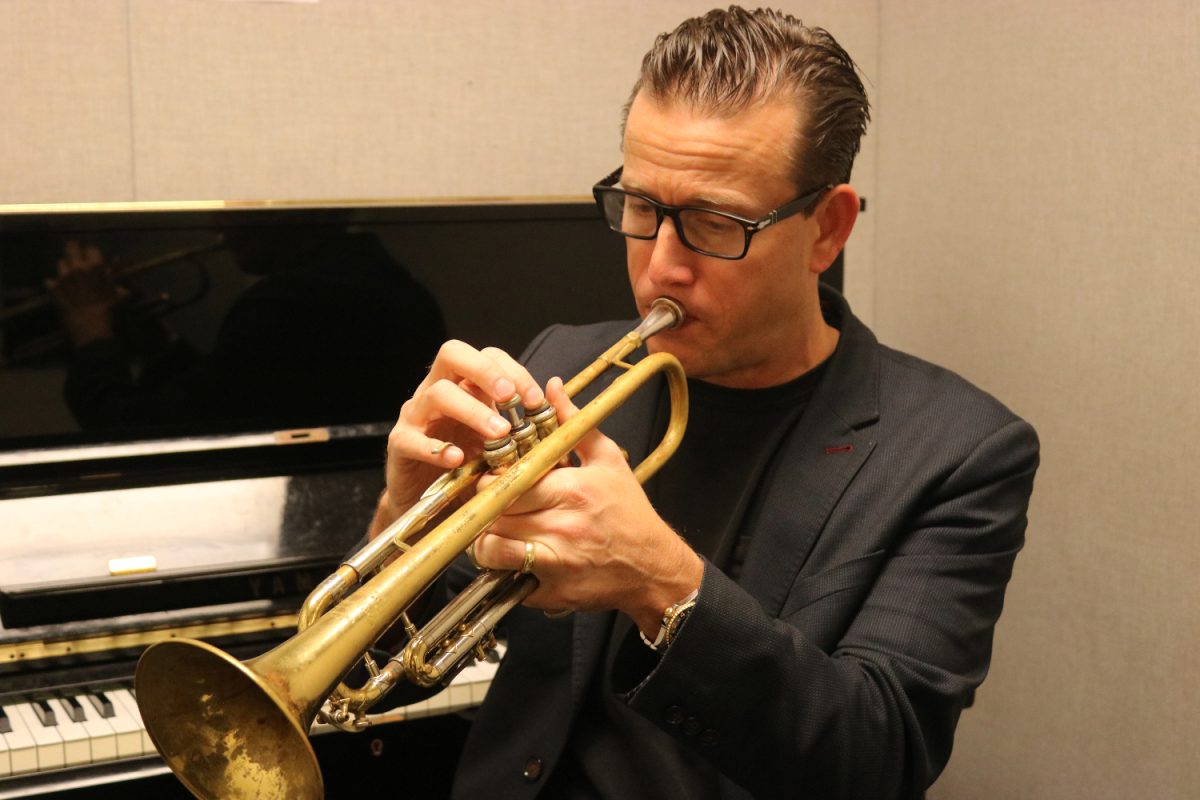The brass trumpet was cold to the touch as 8-year-old Brian Switzer held it in his hands. It glistened under the light as he created a brassy sound.
It was Switzer’s first time playing the instrument and he was instantly hooked.
His mother bought him his first trumpet at a garage sale. According to Switzer, the trumpet wasn’t the best, but it could play.
“I remember the first night before band class started in third grade… I slept with my trumpet in bed like a stuffed animal because I was so excited,” Switzer said.
After playing the trumpet all the way through high school and getting a degree in music education and jazz performance from UCLA, Switzer started getting gigs and getting invited to play in groups such as MUSE, Train, and Bobby Weir & Wolf Bros.
When the band Train was looking for a trumpet player, Switzer jumped at the chance to play with a popular band and follow his passion.
“They sent me the audition music and the audition was in 48 hours. Of those 48 hours, I spent 20 of them practicing the music because I wasn’t trying to get it. I was getting it,” Switzer said.
When Switzer got the job, he was teaching at Borel Middle School as the director of the jazz ensemble. The original gig was supposed to be for one song for five shows in San Francisco, but by the end of the week, he was on 13 songs. He toured the world with Train, playing around the world in places such as Germany, France, and the UK.
One of Switzer’s favorite experiences playing music on tour was playing with the National Symphony Orchestra in Washington and Boston.
“To sit on the stage and hear it for yourself and then for three nights of concerts was so inspiring,” Switzer said. “It was unbelievable how good they were.”
Switzer knew that conductors like the one in the orchestra were the ones who had the ability to greatly inspire their students and create future musicians.

If you’re a teacher, you don’t know if your student can do it or not. But you have to believe that they can so that the student believes that they can and take the extraordinary steps required to get to the highest level.
— Brain Switzer
“Teaching music is a super valuable thing because all of those players had music teachers who really cared about them and their music. If you’re a teacher, you don’t know if your student can do it or not. But you have to believe that they can so that the student believes that they can and take the extraordinary steps required to get to the highest level,” Switzer said.
This year, Switzer has been on tour with Bobby Weir and the Wolfpack, and he has toured all around the U.S.
“It’s amazing to be part of the Wolfpack. By the very nature of the Grateful Dead, the pieces are improvisatory, which is challenging but exciting. The songs have open sections where you can just do your thing,” Switzer said.
The freedom to improvise over well-known music allowed Switzer to use his creativity to the fullest and showcase his abilities in front of hundreds and thousands of people.
Switzer currently teaches over 250 students a day at Carlmont High School and works as one of the music directors of the Carlmont Instrumental Music program. He is beloved by many of his students and colleagues. Colin Gutierrez, a senior and the concert band teacher’s assistant, talks about his bond with Switzer.
“Switzer has a very significant impact on his students. When he’s here, students tend to act more accordingly, and he is able to influence the students,” Gutierrez said. “He teaches in an effective way.”
A life full of music
Jon Nordgren has been a professional musician since the age of 16, and he hasn’t stopped since.
Nordgren began his music career playing the clarinet, and by the time he was auditioning for college, he had experience playing the bass clarA inet, bassoon, saxophone, and flute.
He grew up in Aptos, California and he was part of a band called Night Train that he had started with his friends.
“The mother of one of the kids in our band had a gig to play for a Christmas party and she hired us. From then on, it was by word of mouth,” Nordgren said.

The group disbanded after the members went off to college, but that wouldn’t be the last time they all played together.
After two years in college, Nordgren got a job as a band leader for Princess Cruise Lines, he reunited the band and all of the members dropped out of college to join him. The band continued playing on cruises for the next five years.
After that, Nordgren played for 16 years for San Francisco’s Beach Blanket Babylon, the longest-running show in San Francisco history. He’s also played with well-known musicians such as Smokey Robinson, Little Anthony, and The Temptations.
Even with Nordgren’s experience in music, it was extremely hard to balance multiple gigs and make a living at the same time.

Nordgren has a bachelor’s degree as well as a master’s in the arts, music theory, and composition. After he received his credentials, he started his career at James Logan High School in Union City. He currently teaches at Cabrillo College in Aptos, where he went to school.
“You want to make a living, but the gigs are going to be on Friday and Saturday nights. What do you do Monday through Thursday? And what if there’s no gig? For somebody like me who is just doing weddings, parties, theater, that type of stuff, it’s almost impossible to make a living at my level,” Nordrgen said.
According to a survey published by the Princeton Survey Research Center, the median musician in the sample reported earning nearly $35,000 in 2017. The figure includes personal income from all sources. The Music Industry Research Association (MIRA) survey found that the average musician earns two-thirds of their annual income from music-related activities, and one-third from non-music-related sources. Five percent of the sample earned less than $100 from music-related activities in 2017.
According to Southern Utah University (SUU), The revenue in the music industry plummeted after digital technologies such as Napster or Spotify because people could download any song they wanted for free.
“When I was younger, it was easy to get gigs because you had to hire a band for your wedding, but then DJs came, and all of my gigs went away,” Nordgren said.
Yet, these musicians still persevere to pursue their passions.













